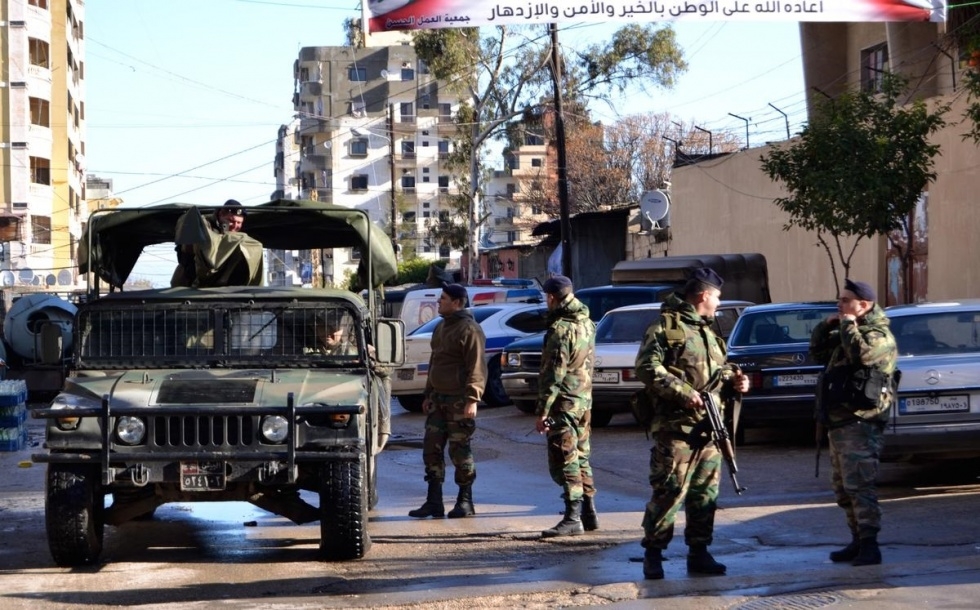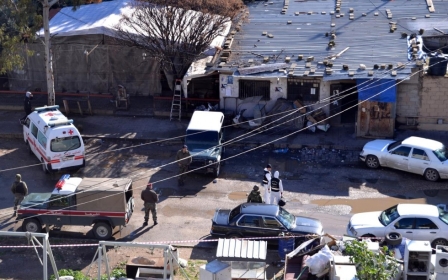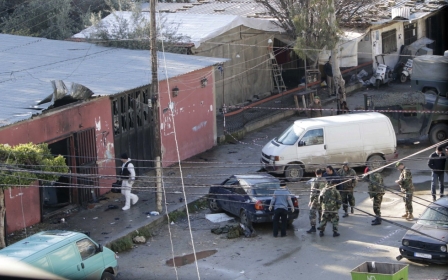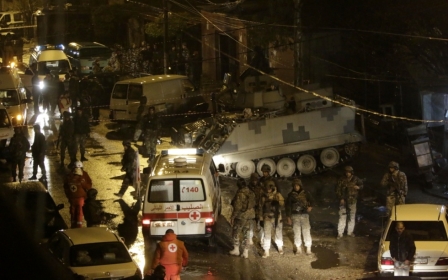30kg bomb found near Lebanon's Tripoli as security remains high

A 30 kilogram bomb was found and later dismantled near a Lebanese Army base in the northern city of Tripoli on Wednesday, security services said.
"The army personnel found a bomb, comprising 30 kg of explosive material, on the main road in Tripoli," a security source told the Anadolu Agency on the condition of anonymity.
Sources also told Lebanon’s The Daily Star newspaper that general security officers spotted the bomb about 100 meters from an army post near Tripoli, but were able to safely defuse the device.
The bomb was found just two days after security forces raided Lebanon's notorious Roumieh Prison after prison guards came to suspect that inmates had helped to plan and coordinate a deadly suicide attack in Tripoli over the weekend.
A block in the prison had until the raid been largely reserved for terrorist suspects and those with links to militant groups, with evidence emerging that the inmates were able to smuggle in mobile phones which allowed them to freely contact the outside world and to also use the internet.
Authorities have vowed to get tough on the prison and to bolster security, saying that it will help to crackdown on issues that have long plagued Lebanon, such as kidnappings for ransom, killings, vendettas, drug smuggling and car thefts.
“The Roumieh Prison operation has dealt a crushing blow to terrorist groups,” a senior military official, who was quoted anonymously, told The Daily Star.
However, the country has remained on alert ever since the raid, with fears high that a string of reprisal attacks could be on the horizon.
On Tuesday, one day after the prison raid, the Lebanese army was able to seize another suspected suicide attacker in Tripoli who was arrested in the same Mankoubine neighbourhood from which this weekend’s twin suicide bomber hailed.
The dual blast, which targeted the Omran cafe in the majority Alawite neighbourhood of Jabal Mohsen, killed nine and injured at least 30 others.
Interior Minister Nouhad Machnouk told reporters that the authorities believed the Islamic State (IS) group to be behind the blasts, despite the Nusra Front’s releasing the names of the bombers before their identities were publicly revealed, in an apparent attempt to take credit for the attack.
Tripoli has long been seen as a hotbed of tensions between the city’s largely impoverished Sunni majority and the smaller Alawite minority. While tensions have periodically flared up, the bloody civil war in neighbouring Syria, which has sent some 1.5 million refugees fleeing into Lebanon, has exasperated tensions.
Also on Tuesday, the army announced that it had arrested a Lebanese and a Syrian national, at a military checkpoint in Wadi Hmayed on the outskirts of the northeastern town of Arsal, which has seen fighting between Syrian militants, including the Nusra Front and IS and Lebanese army forces, as well as local Hezbollah fighters.
While the Lebanese Army is now believed to be back in control of the small border town, less than 10 kilometres from the Syrian border, Nusra managed to capture hostages and has been holding talks with Lebanese authorities who have been trying to broker the release of the 25 servicemen held captive.
The release of some prisoners being held in Roumieh had been a key demand of the militants, with Nusra responding firmly to the raid.
“All Lebanese sects must bear the consequences of the Lebanese Army’s reckless acts,” the group said on its Twitter account on Monday night. It also threatened to execute the 25 soldiers held hostage.
Middle East Eye propose une couverture et une analyse indépendantes et incomparables du Moyen-Orient, de l’Afrique du Nord et d’autres régions du monde. Pour en savoir plus sur la reprise de ce contenu et les frais qui s’appliquent, veuillez remplir ce formulaire [en anglais]. Pour en savoir plus sur MEE, cliquez ici [en anglais].




